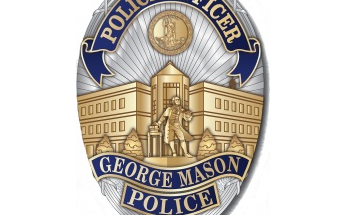Eradicating the Opioid Crisis in Northern Virginia
By Olivia Vermane, Staff Writer
Governor Ralph Northam and Northern Virginia leaders spoke at Mason on April 19 regarding the opioid crisis currently threatening the nation.
As the largest public research university in Virginia, Mason has the resources available to make an impact in battling the opioid crisis both nationally and regionally, according to university provost and executive vice president David Wu.
Northern Virginia leaders have begun working with Mason to enact a multidisciplinary initiative that will address a plethora of issues caused by the opioid crisis, as well as other drug abuses and problems.
Kicking off the conference, Gov. Northam opened by addressing the opioid crisis as the largest challenge in the commonwealth of Virginia.
“We lost 1,207 virginias to opioid overdose in 2017,” said Northam.
A former neurologist himself, Northam discussed the issue of patients becoming addicted to narcotics within a span of five or six days due to an injury that initially requires an opioid painkiller. The early use of these narcotics can easily lead to the abuse of heavier and more damaging drugs such as heroin.
The governor presented the idea of finding more innovative ways of dealing with acute and chronic pain instead of use of narcotics, which is where universities like Mason come in.
Mason is well-equipped to conduct further research and development in terms of finding an alternative to narcotics that can be used to alleviate physical pain.
Through its collective expertise in fields such as public health, neuroscience, law enforcement and economics, the university presents a range of opportunities for education that can be used to further combat the opioid crisis.
Northam emphasized the budget the Virginia state legislature is currently working on, noting the stark difference between the House of Delegates and the Senate. Unlike the Senate, the House budget includes an expansion of healthcare and Medicaid, with a total difference of about $400 million between the budgets.
“Let’s put excuses aside and do what’s best for the Commonwealth of Virginia,” Northam said. “If we put our minds together, and our efforts together, we can overcome it.”
Northern Virginia leaders from a range of perspectives and disciplines also joined the panel to detail the statistics and impacts of the opioid crisis right here in Virginia.
According to a recent Fairfax County Opioid Task Force report, in Virginia alone there was a total of 803 deaths due to fentanyl and/or heroin in 2016, as well as 465 deaths from prescription opioids.
Panelists emphasized that the underlying problem is not simply the overdose or accident itself, but the long term addiction that precedes it. Ending addiction is not likely to be achieved in one entity or program— it requires extensive treatment, prevention, and management, as outlined by Northam.
He emphasized education in public schools from a young age, and creating an awareness of narcotics issues before they are a threat to our youth.
Mason has the potential to make a true impact in fighting the opioid epidemic according to the panel, and efforts are already underway to solve the crisis, whether it be through the collective gathering of regional partners, identifying of sufficient funding to aid treatment or research programs, or conducting research or workshops that find more direct solutions to the issue.
“This is not the end, this is just the beginning,” said Provost David Wu.
Photos by Angelique Arintok and Alexis Whitted






